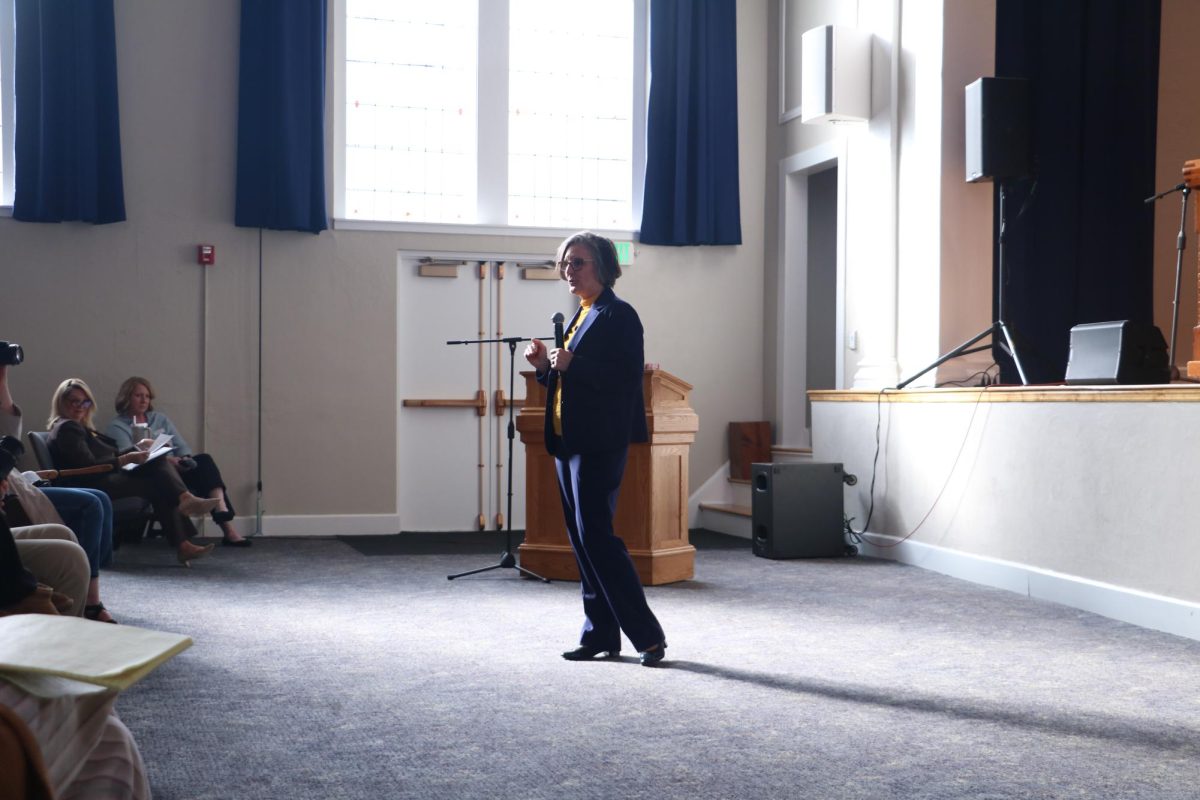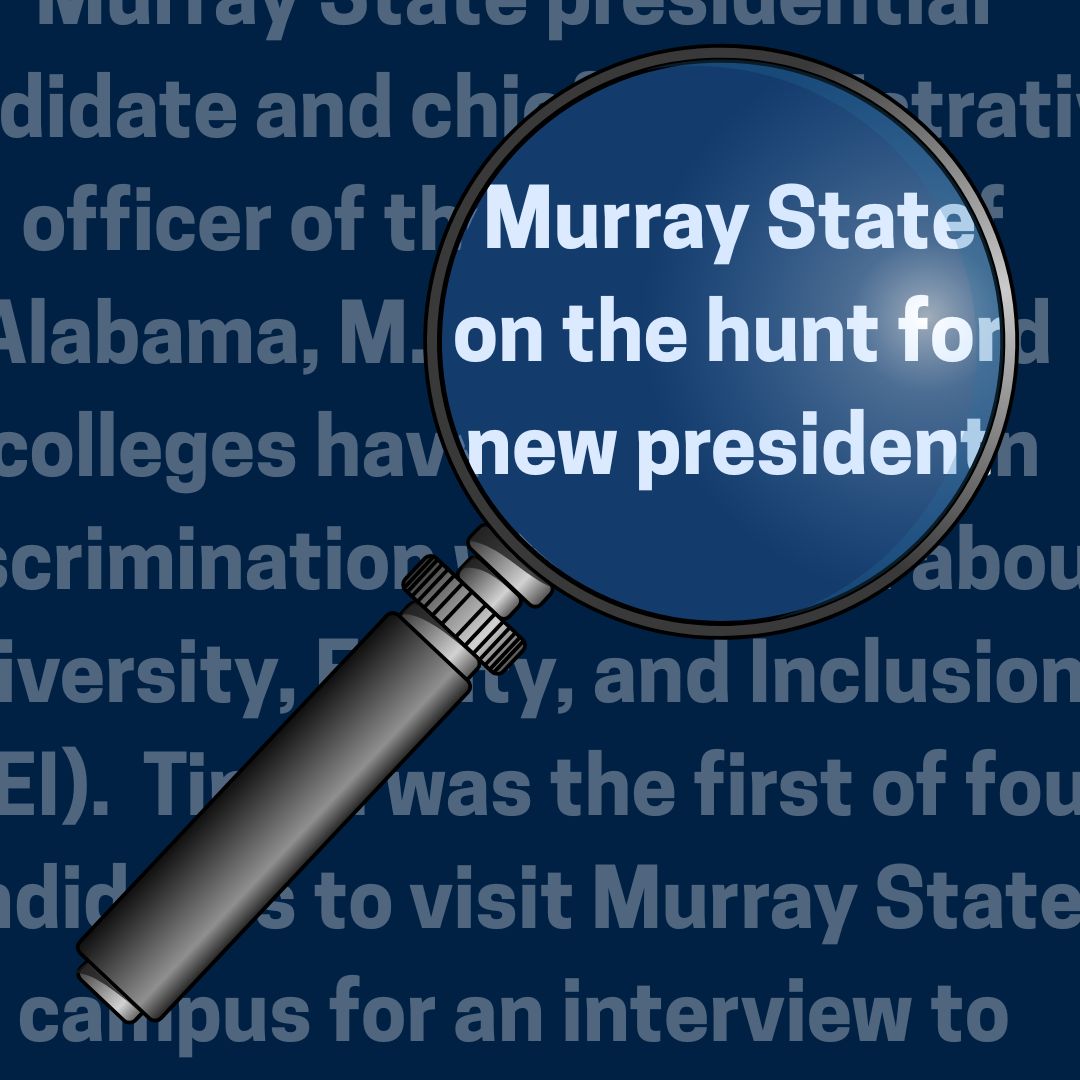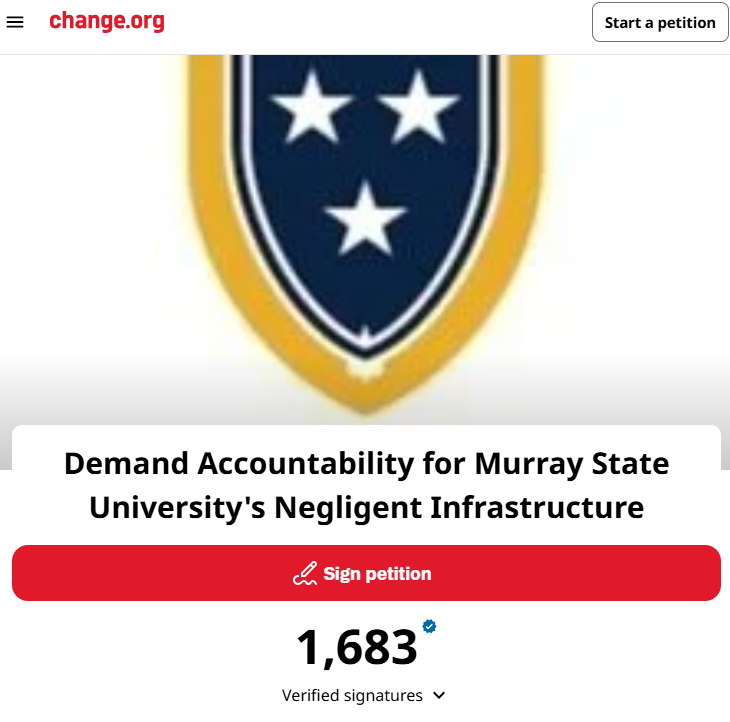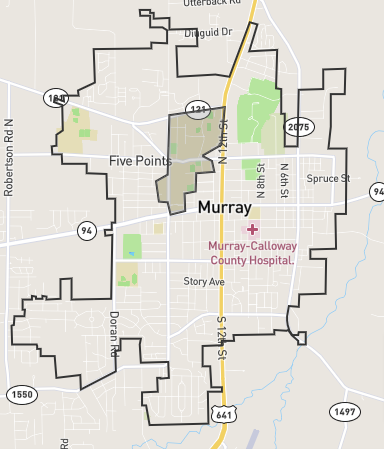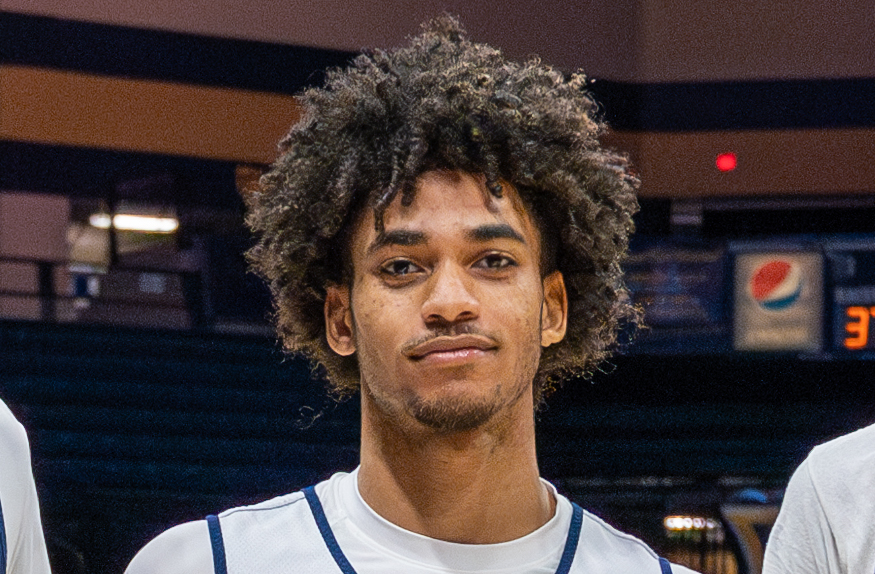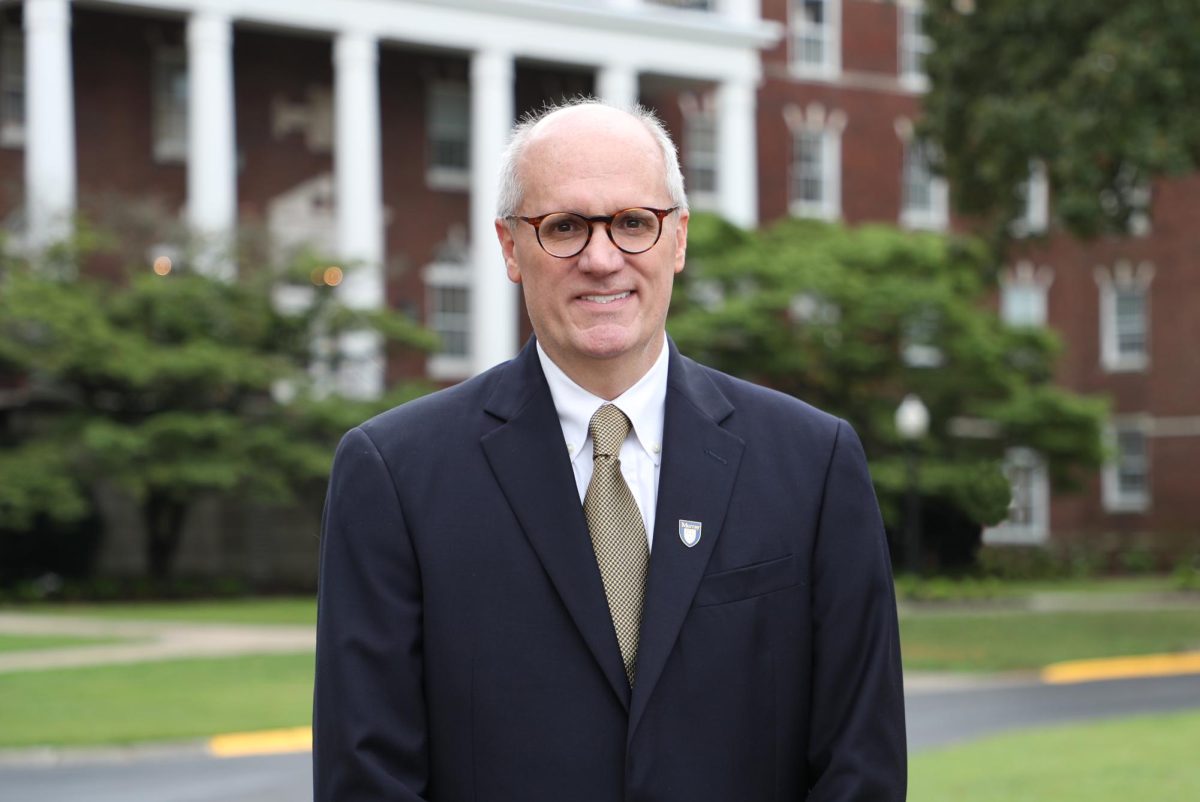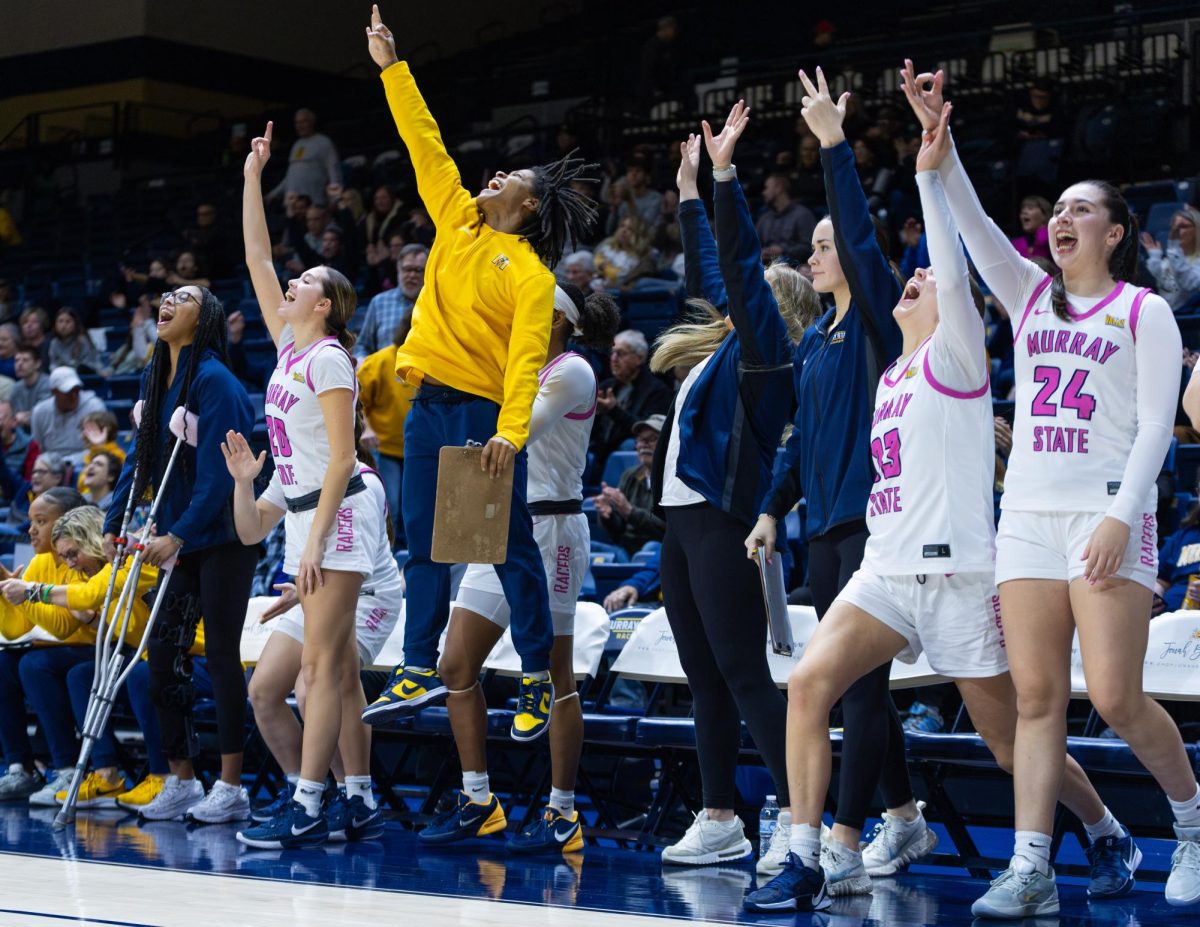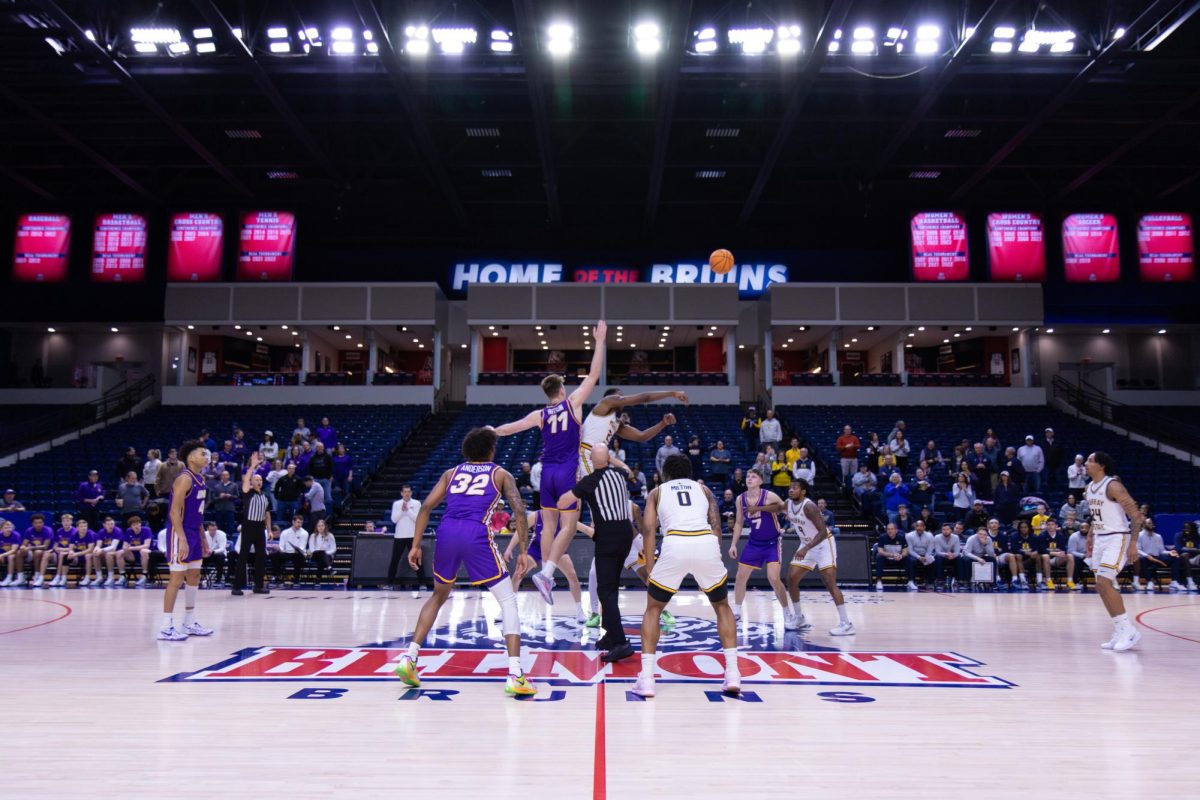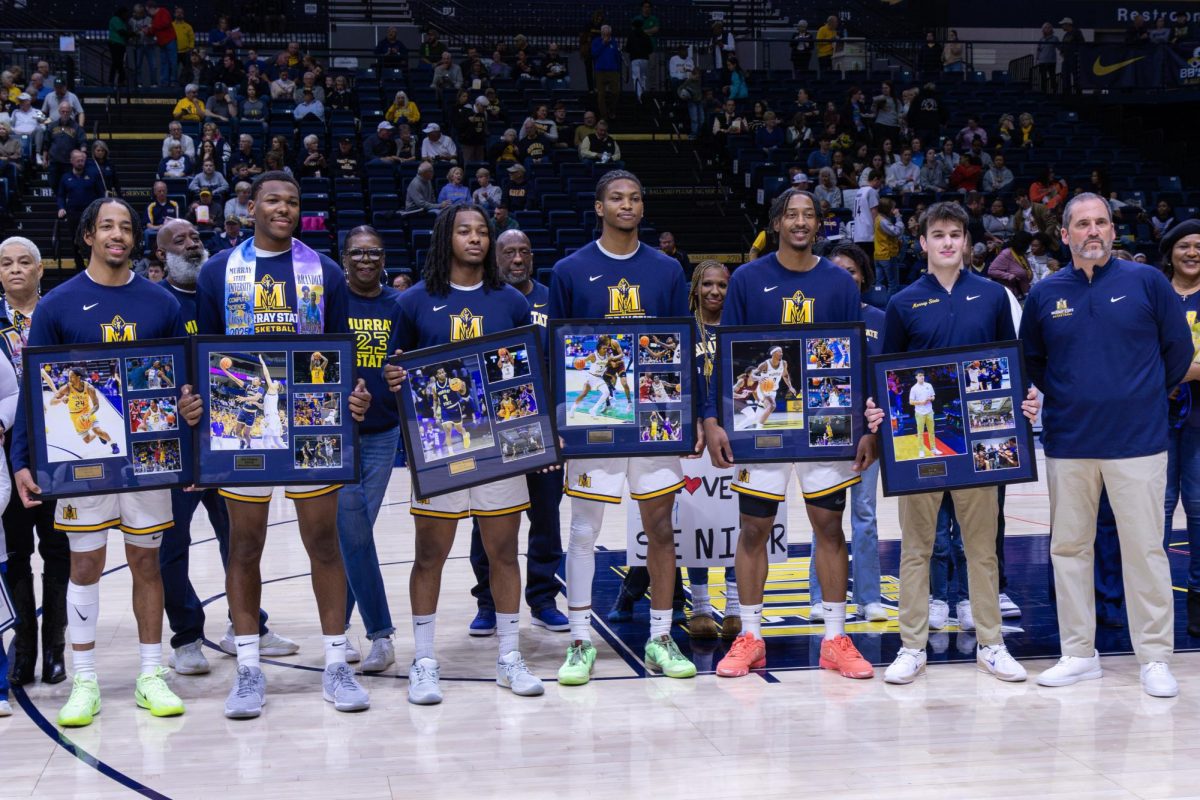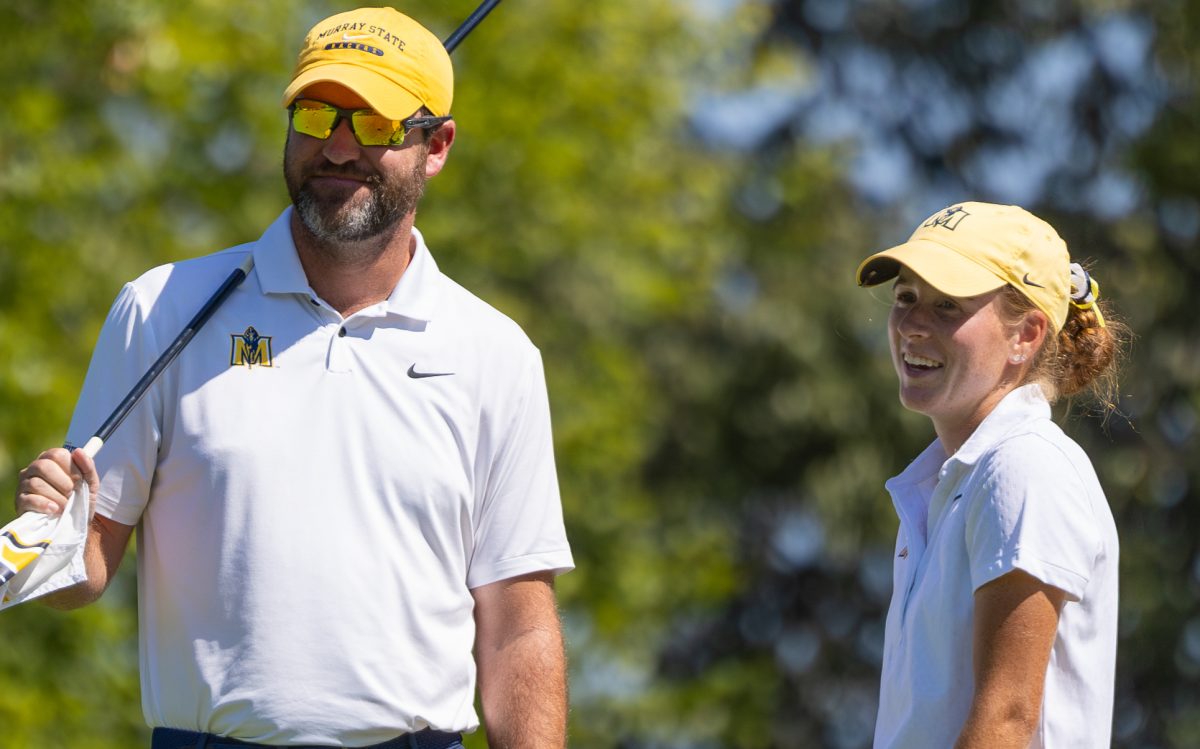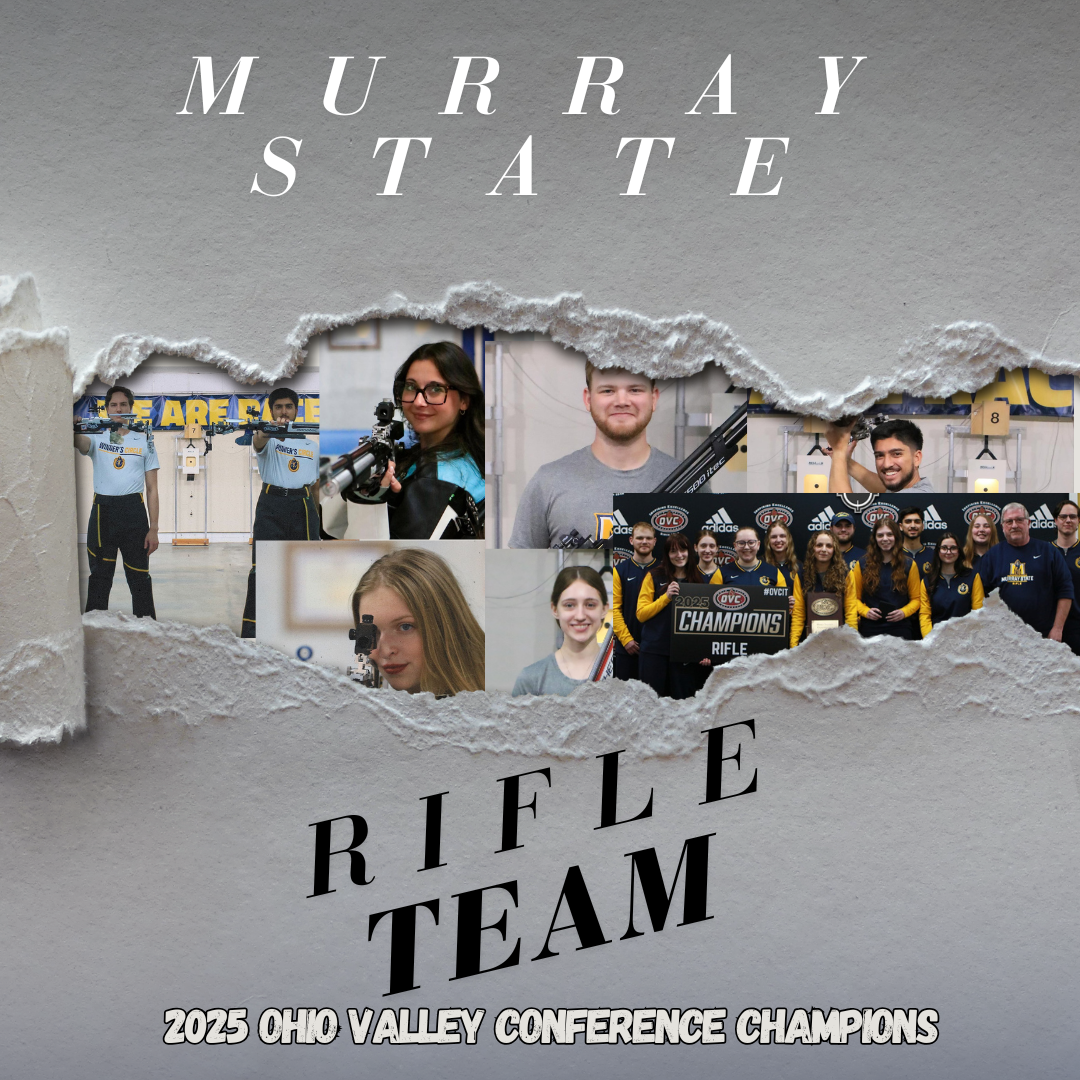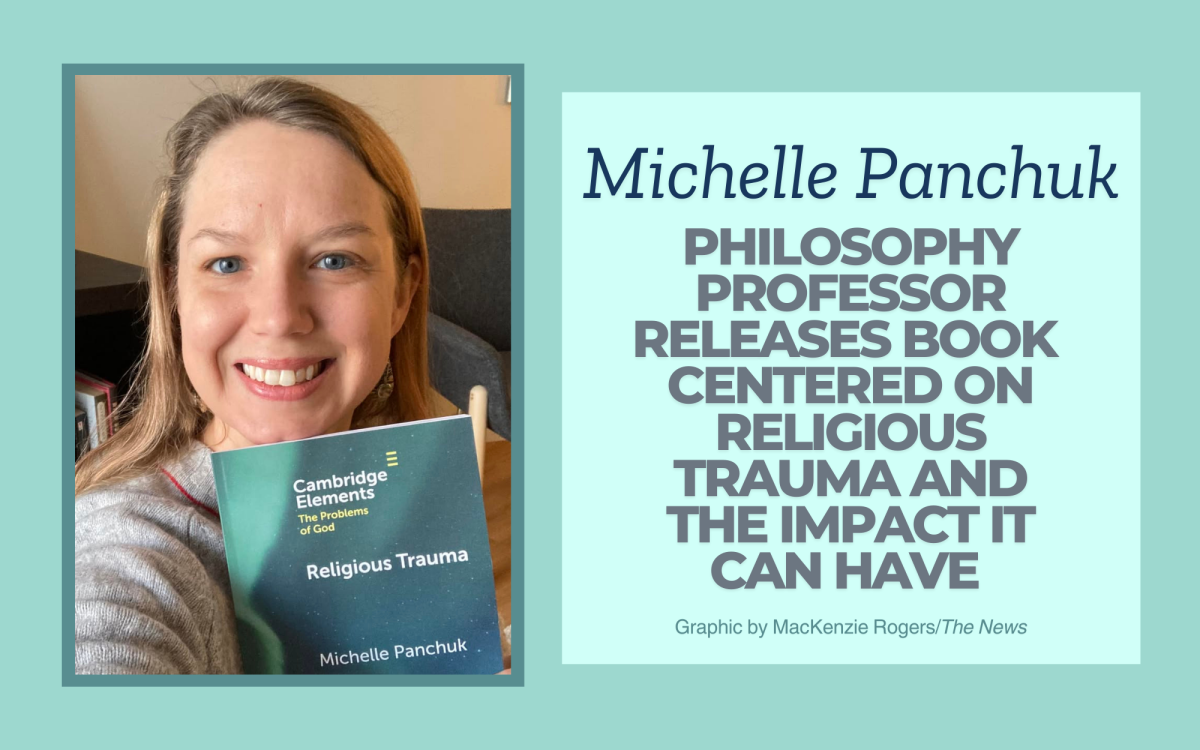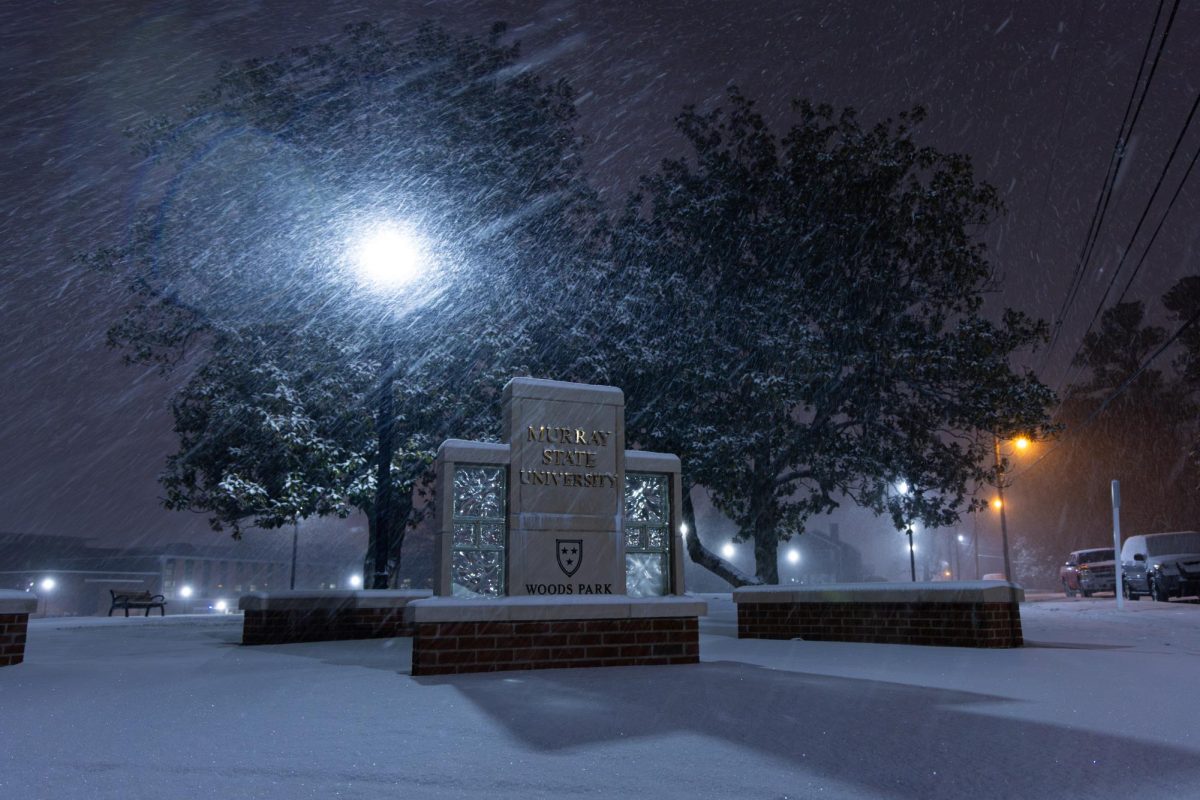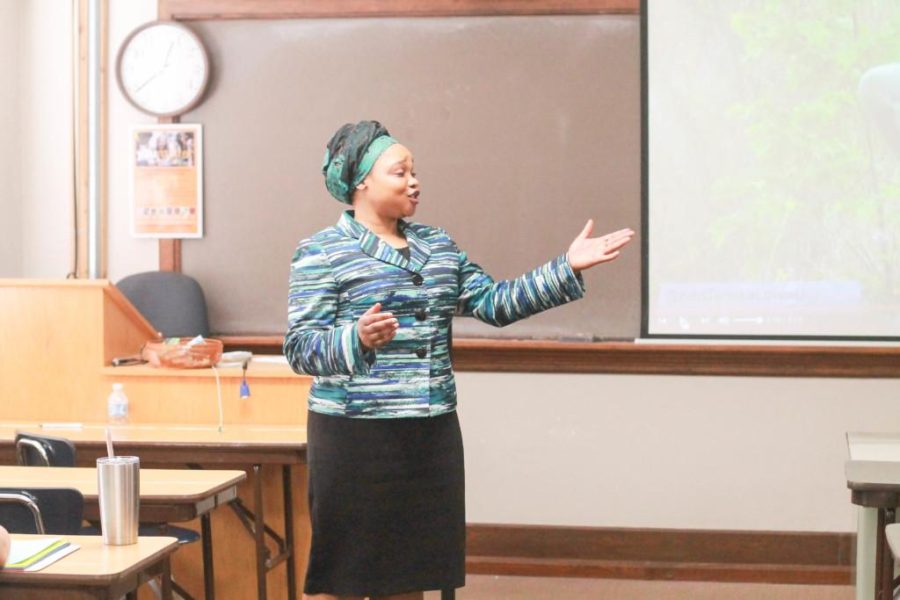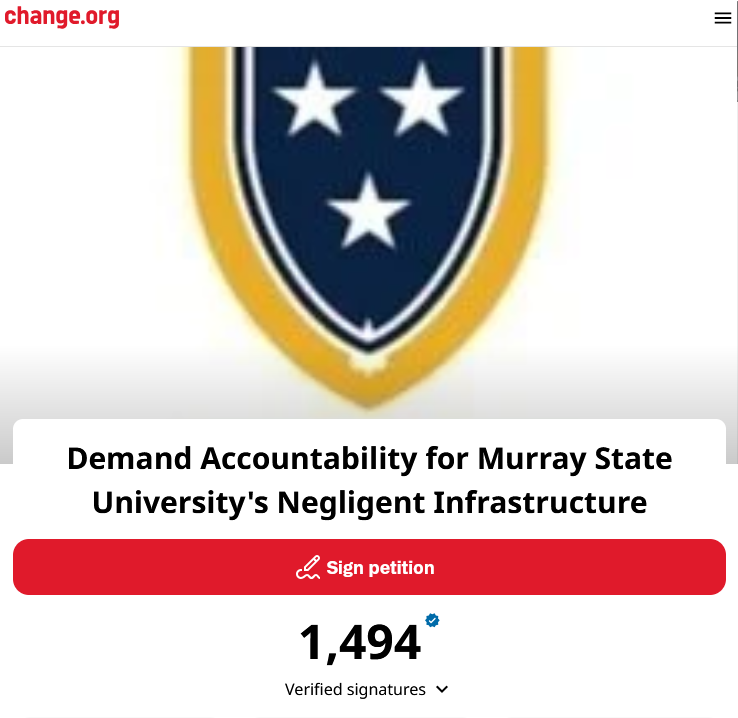Story by Lindsey Coleman, Contributing writer
Bellarmine Ezumah, professor of journalism and mass communications, has been chosen for the Carnegie African Diaspora Fellowship Program.
Ezumah said the fellowship will sponsor her three-month trip to Uganda Martyrs University in Nkozi, Uganda, where she plans to co-develop a new communication program.
According to the program website, the Carnegie African Diaspora Fellowship Program’s goal is “to facilitate equitable, effective and mutually beneficial international higher education engagements between scholars in Africa and African Diaspora academics in Canada and the United States.”
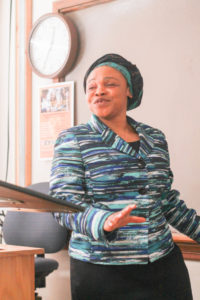
Ezumah said the fellowship review board assessed many areas of her experience, including leadership roles, motivations, personal and professional interests and previous awards and fellowships.
Ezumah said she applied for the fellowship in July 2016, and her approval email came through during one of her classes at the end of September.
“They want to design and start a communication program, so I’m going there to help them develop the curriculum for this program,” Ezumah said.
Ezumah said the program will be something similar to what Murray State offers, including advertising, journalism and public relations majors.
“What will set this program apart is that it’s going to have a sequence that focuses on social and pastoral communication,” Ezumah said, “It will serve the needs of Ugandans.”
Ezumah said quality is going to be the backbone of this program.
She said she will spend the first few weeks of her time in Uganda conducting a needs assessment of the community, and she will find out what the stakeholders and media companies of the community need from the new communication program.
Ezumah said another goal is to recruit and look at the quality and qualifications of teachers who could be a part of the program in Uganda.
Ezumah said that her relationship will go beyond her three-month stay because she plans to conduct an ongoing formative evaluation, which would continuously evaluate the program and seek to improve it.
“Also, what I plan to accomplish with this opportunity is to see if I can help jump start a collaboration between Uganda Martyrs University and Murray State University,” Ezumah said, which she said could include study abroad opportunities in the future.
Ezumah said her interest in the fellowship program stemmed from her African heritage and her extensive research about problems and issues in Africa.
“Part of my excitement is that this opportunity will give me a chance to implement some of those theoretical results that I have found in my research,” Ezumah said. “It’s not just to talk about them theoretically, but I get to do something about it.”
Ezumah said she was born and raised in Nigeria and she moved to America to earn her undergraduate, graduate and PhD degrees.
“I’m excited that I’m engaging in developing a program that will probably give young Africans a glimpse of some of the things that I learned here,” Ezumah said.
Along with starting the communications program in Uganda next semester, Ezumah said she will continue to teach her Murray State courses.
For her international communication course through Murray State, she said she plans to teach theoretical aspects of communication and incorporate firsthand East African media to apply the theories she teaches her students.
She said she will use Skype, Canvas and email to communicate with her students while she is in Uganda.
Timothy Todd, dean of the Murray State Arthur J. Bauernfeind College of Business, said the college is very proud of Ezumah’s work.
“Dr. Ezumah is a tremendous faculty member with an outstanding research agenda,” Todd said. “Her Carnegie Fellowship is extremely prestigious and is a high honor for her, the Journalism and Mass Communication Department and the Bauernfeind College of Business here at Murray State University.”
Debbie Owens, interim chairwoman of Murray State’s Journalism and Mass Communication Department, also expressed her excitement for Ezumah.
“The fact that she is taking the opportunity to build and structure their journalism and mass communication curriculum is just one more feather in our cap in terms of our own efforts to globalize the things that we do in this discipline,” Owens said.


